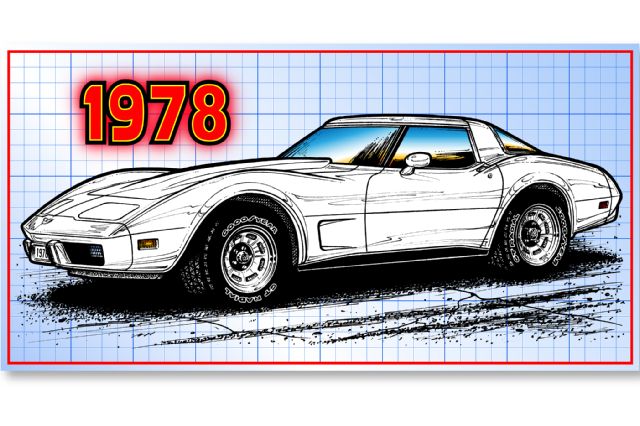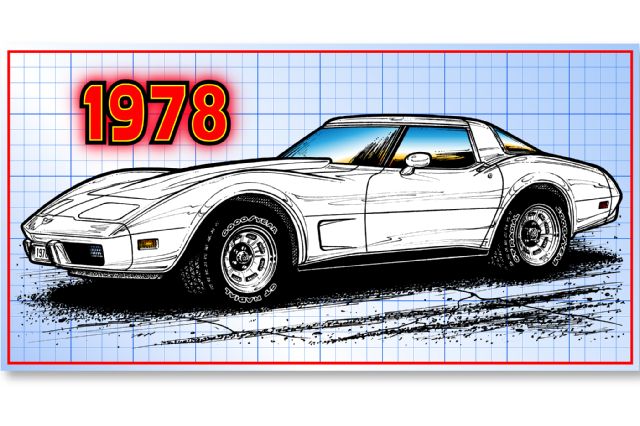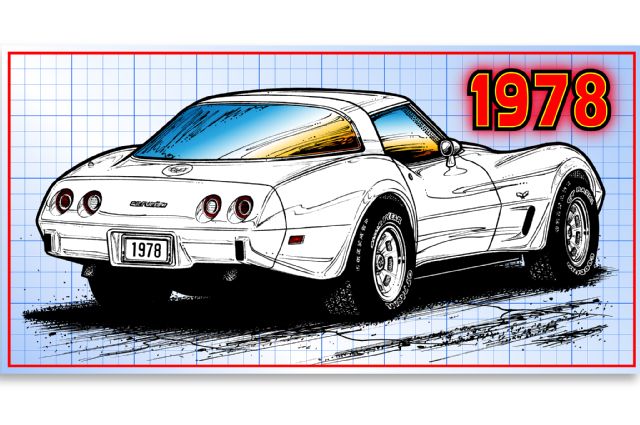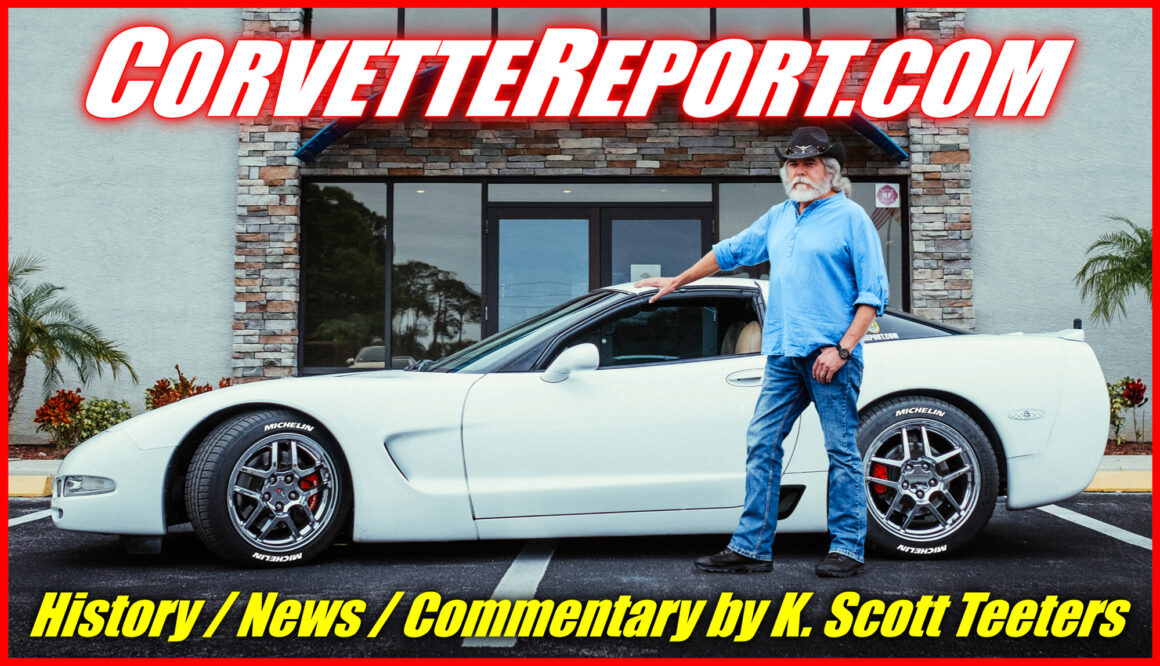
by Scott Teeters as republished from Vette Magazine’s online SuperChevy.com
The late ’70s were indeed “strange dayz” for the Corvette. The Founding Fathers had all been put out to pasture. Harley Earl was long gone, Ed Cole made his exit in September 1974, Duntov was gone from GM in January 1975, and Bill Mitchell took “exit, stage left” in July 1977. Without angels in the boardroom, what would become of the Corvette?
Fortunately, the afterglow of the work of the Founding Fathers had tremendous momentum despite power cuts, weight increases, and a 100 percent price increase since 1967. The ’77 Corvette set an all-time-high sales record of 49,213 units. When the ’78 Corvette was introduced on October 6, 1977, the press and public were surprised to see a very handsome facelift—the return of the fastback. While the 1968-’77 Corvettes never got much heat for the lack of interior space, opening up the roof area behind the driver made living with a Corvette much easier. Not since the days of the midyear Sting Ray coupes did Corvette interiors have that “open” feel.
Where did this new roof design come from? In 1973, Duntov created a hatchback prototype based on a 1968 coupe. The gas tank was moved forward and to the right, behind the seats. This provided a deep, accessible trunk space and eliminated the need to push the passenger seat forward and up in order to stuff items behind the seats. While the B-pillar was thicker and shaped differently, the shape and curve of the glass was spot-on for what went into production in the ’78.
The prototype looked good, was never shown to the press, and was only known as “XP-Hatchback.” Unfortunately, the number-crunchers said, “Too much retooling.” Well, Duntov tried. Fortunately, the design looked great, so in 1976 it was decided to revisit Duntov’s roof design, only cost-reduced without the hatch feature. A functioning hatch wouldn’t arrive until 1982 as part of the Collector Edition Corvette.

Corvettes from 1974-’77 looked pretty much the same as engineers scrambled to keep up with emissions and safety requirements. When the ’78 was released with its stunning new roof, Chevrolet splashed billboards across America and magazine ads with side-view photographs, showing off the new profile and the optional two-tone Silver Anniversary paint.
The dark and bright silver paint scheme was supposed to be used for the Indy 500 Pace Car, but the black and silver design won out. A two-tone paint option hadn’t been available since 1961. The Silver Anniversary paint cost only $399, and combined with the $340 optional aluminum wheels and the $218 60-series Goodyear tires, the ’78 Corvette looked young again.
Under the skin, the ’78 Corvette was almost identical to the ’77 model, but with a few evolutionary improvements. Thanks to the new roof, the gas tank was enlarged to 24 gallons, the biggest since the C2 “tanker” option days. The door panels and dash were mildly redesigned and several controls were relocated.
Under the hood, the $525 L82 performance option picked up 10 horsepower to 220 thanks to a new aluminum manifold and an improved cold-air-induction system. Unfortunately, weighing in at 3,572 pounds, it has the dubious honor of being the heaviest Corvette ever offered. All 1978 Corvettes wore the unique 25th Anniversary badge on the nose and gas cap.
Surely, Chevrolet’s sales group was expecting a big sales bump because of the new profile, plus the patina of the 25th Anniversary edition and the uniqueness of the first special edition Indy 500 Pace Car Replica. Maybe it was the economy and the $704 price hike, or maybe fans needed some time to get used to the new roof, but ’78 sales were down from ’77 by 8,939 units to 40,274. Not good if you’re a bean-counter, but it was still the second-best sales year to date.
However, the following year, with only tiny changes, ’79 Corvette sales jumped to a new all-time high of 53,807, despite the $869 price hike and a slight power bump on the base and L82 option.
After all these years, the ’78 Corvette is still a handsome-looking car, especially with the Silver Anniversary paint and alloy wheels. Yes, it was heavy, but don’t hate the ’78, it wasn’t the best of times.

